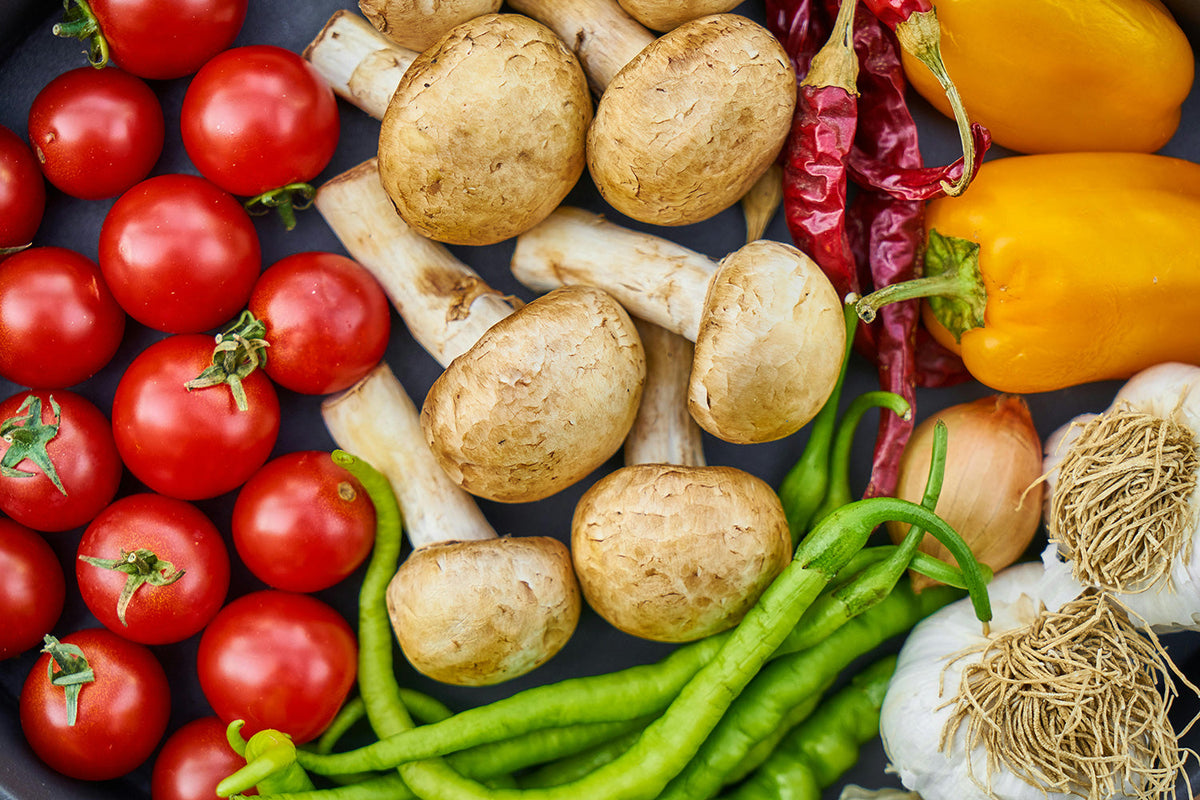
What Fruits and Vegetables Can Dogs Eat?
|
|
Fruit and vegetables are a staple of a healthy human diet, and while that’s also true for dogs, not all fruits and vegetables are safe for your dog to eat. In this article, we’ll answer ‘What fruit and veg can dogs eat?’
Below we’ll look at some of the veggies that are safe for your pet as well their nutritional benefits. So, what vegetables can dogs eat?
Parsnips are safe for your dog to eat if you prepare them appropriately. As with other vegetables, tips for feeding your dog parsnips safely include cooking them well (without any cooking fat) to reduce the risk of choking and avoiding seasonings, spices, and toxic ingredients like onions and garlic. Parsnips are packed with essential vitamins and minerals, including 28% of the recommended daily intake of vitamin C, which supports your dog’s immune system and promotes faster healing. Additionally, the high fibre content aids in maintaining healthy digestion.
Another vegetable that is great for your dog’s immune system is the humble carrot. Not only that, carrots contain beta-carotene, which can help maintain your dog’s vision. Raw carrots are also great as a healthy treat-alternative and all that crunching will help to reduce plaque, keeping their teeth healthy.
Like carrots, sweet potatoes contain beta-carotene, so they’re good for eye health, but they also have a high fibre content (3.3g of fibre per 100g), so they’ll help keep your dog’s gut healthy too.
Bell peppers can be fed raw or cooked and contain antioxidants which help to reduce inflammation and improve healing.
Although some mushrooms are toxic to your pup, just like humans, dogs can eat mushrooms bought from the supermarket are safe. The nutrients in mushrooms help to boost the immune system and keep the skin, bones, heart, and liver healthy.
Among the nutrients contained in spinach are iron and vitamin K. Iron is needed to help red blood cells carry oxygen around the body, and vitamin K helps your dog’s blood clot if they get injured.
Cauliflower is a good source of fibre and supports digestion, but it also promotes healthy bones and good heart health and supports your dog’s immune system.
Broccoli is another antioxidant and a great source of fibre, so it’s great for digestion and healing. What’s more, if your dog likes raw broccoli it’s a healthy alternative to treats and improves dental health.
Celery is fibrous, which means it contains lots of dietary fibre. While that’s great for gut health, it’s important to only give small amounts. Too much celery could cause a gut blockage or constipation, and larger chunks could be a choking hazard.
The nutritional benefits of pumpkin include high levels of dietary fibre, which keeps your dog’s gut working well, beta carotene for eye and urinary health, and antioxidants to promote healing and support the immune system.
We’ve covered some of the vegetables and their benefits, so what fruits can dogs eat?
Apples, like most fruit and vegetables, are a great source of dietary fibre, but they also contain vitamins A and C, which support the immune system and gum health. Whilst apples are safe for dogs to eat, the apple seeds are not as they contain cyanide which is harmful for dogs, so it’s important to remove the apple’s seeds before feeding to your dog.
Cranberries are considered a superfood, and they’re safe to feed to dogs. They’re natural antioxidants and support the immune system. Cranberries can also reduce urinary tract inflammation, but only if eaten in large quantities, which wouldn’t be advisable for most dogs.
Coconuts are high in fatty acids, so they’re great for keeping your dog’s skin, coat, and joints healthy. Not only do the antioxidants in coconut support your dog’s immune system, but bacteria and yeasts are prevented from entering the body due to the healthier skin barrier.
Bananas are an excellent source of potassium, which is essential for healthy muscle, nerve, and heart function, so they make a great dog-safe snack.
As their name suggests, watermelons are full of water, which helps keep your dog well-hydrated. In addition, watermelons contain plenty of fibre, vitamins, and potassium.
Raw fruits and veggies contain higher levels of nutrients than those that are cooked, but some can be hard to eat and can occasionally cause choking or gut blockages. If you’re wondering what raw vegetables are good for dogs, it’s best to avoid raw potatoes, pumpkins, parsnips, and sweet potatoes.
To make raw fruits and vegetables a little safer, without losing their nutritional value, it’s best to use them fresh, but gently cooked. To help your dog get these health benefits, our fresh dog food, including our meals for puppies, is packed with 26.5% vegetables and 7.5% fruits. So, what fresh vegetables can dogs eat? Well, if they’re gently cooked then you only need to avoid toxic fruit and vegetables, which include onions, garlic, and unripe potatoes and tomatoes.
If you’ve been wondering what fruit and vegetables are good for dogs, hopefully, you’ve found some inspiration. If your dog is a bit fussy, don’t worry! Check out our blog on how to add vegetables and fruit to your dog's diet.
Bananas are safe for dogs to eat in moderation as an occasional treat – they’re a great source of potassium.
Fully ripe tomatoes are safe for dogs to eat, but they shouldn’t eat the plant or stalks.
Carrots are safe for dogs to eat and can be beneficial for your dog’s teeth.
It’s safe for dogs to eat cauliflower. It’s low in calories and contains vitamins, minerals, and fibre.
Dogs can eat broccoli as it’s not toxic, but any new food should be introduced slowly and given in moderation.
About the author

